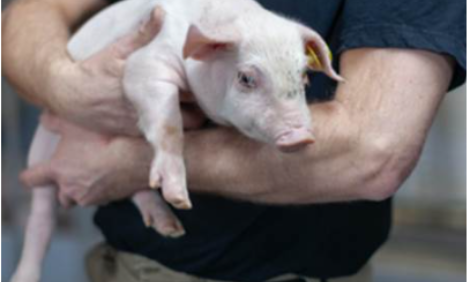



Perceptions of Antimicrobial Usage, Antimicrobial Resistance and Measures to Reduce Antimicrobial Usage by European Pig Farmers
In a survey in five European countries, many pig farmers expressed the view that they use less antibiotics than other farmers in the same country and those in other counties. In general, they were less concerned about the development of antimicrobial resistance than possible legal measures and/or financial penalties to reduce antibiotic use.Pig farmers in Belgium, France, Germany, Sweden and Switzerland have been asked by researchers about their perceptions of antimicrobial usage, antimicrobial resistance and policy measures to reduce antimicrobial usage.
In a paper published in Preventive Veterinary Medicine, first-named author, V.H.M. Visschers and co-authors explain that they conducted a survey among convenient samples of pig farmers – a total of 281 – across the five countries.
They identified some significant differences between the countries (independent variable) regarding farmers’ antimicrobial usage compared to their own country and worries related to pig farming (dependent variables) but most of the differences were rather small.
In general, farmers perceived their own antimicrobial usage to be lower than that of their peers in the same country and lower than or similar to that of farmers from other countries. This may be a consequence of the sampling method, resulting in self-selection of highly motivated farmers.
Farmers were significantly more worried about financial or legal issues than about antimicrobial resistance. They believed that a reduction in revenues for slaughter pigs treated with a large amount of antimicrobials would have the most impact on reduced antimicrobial usage in their country.
Farmers who were more worried about antimicrobial resistance and who estimated their own antimicrobial usage as lower than their fellow countrymen perceived more impact from policy measures on the reduction of antimicrobials.
The researchers say their results indicate that the same policy measures can be applied to reduce antimicrobial usage in pig farming in all five countries.
They added that it seems worthwhile increasing pig farmers’ awareness of the threat of antimicrobial resistance and its relation to antimicrobial usage; not only because pig farmers appeared little worried about antimicrobial usage but also because it affected farmers’ perception of policy measures to reduce antimicrobial usage.
The samples were not representative for the national pig farmer populations, Visschers and co-authors stressed, and they suggest that further research is needed to examine to what extent these findings are representative of these populations and to farmers in other countries.
Reference
Visschers V.H.M., A. Backhans, L. Collineau, D. Iten, S. Loesken, M. Postma, C. Belloc, J. Dewulf, U. Emanuelson, E. grosse Beilage, M. Siegrist, M. Sjölund, K.D.C. Stärk. 2015. Perceptions of antimicrobial usage, antimicrobial resistance and policy measures to reduce antimicrobial usage in convenient samples of Belgian, French, German, Swedish and Swiss pig farmers. Preventive Veterinary Medicine. 119:10-20.
April 2015








